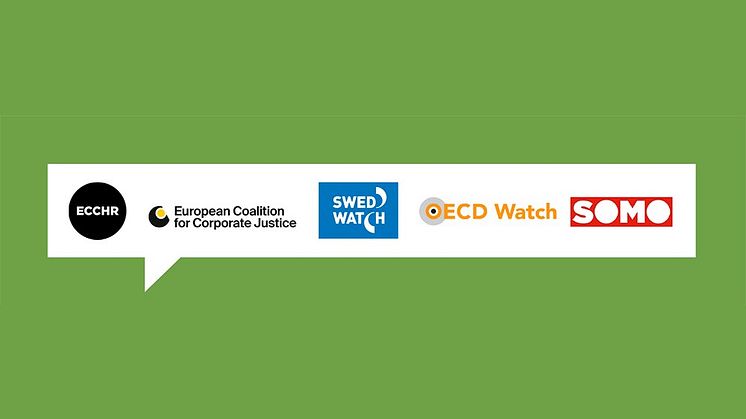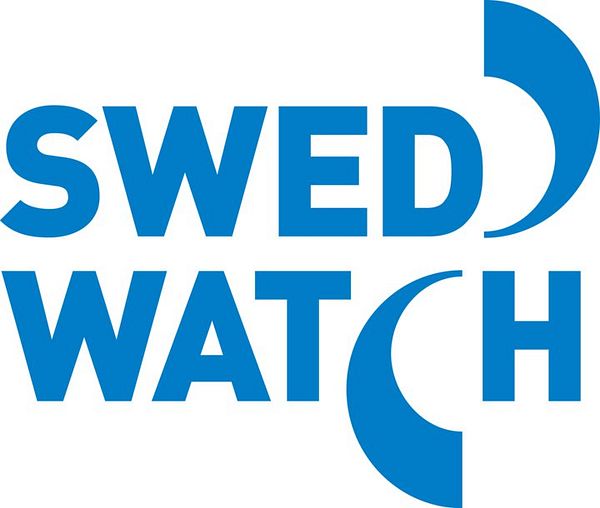
Pressmeddelande -
New EU law on corporate due diligence must cover the full value chain
In a new policy paper, Swedwatch together with SOMO (Centre for Research on Multinational Corporations), ECCHR (European Center for Constitutional and Human Rights), OECD Watch and ECCJ (European Coalition for Corporate Justice) call on EU lawmakers to include downstream due diligence obligations in the upcoming Corporate Sustainability Due Diligence Directive (CSDDD), drawing on multiple case studies which highlight how companies could and should have prevented human rights impacts across their value chains.
Since the European Commission presented its proposal for the EU Corporate Sustainability Due Diligence Directive (CSDDD) in February 2022, debates on what should be in and out of the directive have been raging in both the European Parliament and Council of the EU. With critical votes and negotiations coming up, the plenary vote in the EU parliament is expected in late May, it is important to iterate that the directive must cover businesses' due diligence responsibilities across the entire value chain – in line with international normative standards on responsible business conduct and echoing recent calls from UN agencies and a range of businesses.
-We are concerned about the current position of the Council of the EU, which would exempt companies from scrutiny for the harms their products or services could create. It is imperative that member states like Sweden revisit this approach and push for a directive that fully aligns with existing frameworks, says Charlotte Junghus, researcher at Swedwatch and co-author of the paper.
The due diligence expectations contained in the OECD Guidelines for Multinational Enterprises and United Nations Guiding Principles on Business and Human Rights (UNGPs) have always, since their inception in 2011, been intended to take a risk-based approach that includes the full “value chain” of business relationships. This includes “downstream” entities and business relationships as well as “upstream” relationships, in other words both the resources and activities required to produce a product or service as well as the consumption and end use of the product or service.
- Our message is simple: there is a clear international consensus around the need for companies to conduct downstream due diligence. As civil society we find it deeply disturbing to see attempts by some lawmakers to water down the current proposal based on false claims and misinterpretations regarding this issue, says Charlotte Junghus.
With the aim to inform ongoing debates on mandatory human rights and environmental due diligence, the policy paper A little downstream goes a long way: How downstream due diligence can prevent and mitigate harm discusses businesses' responsibilities to conduct risk-based due diligence across their value chains by examining five case studies through the lens of the OECD Guidelines and UNGPs.
- Based on our analysis, we see no reason why downstream due diligence should not be feasible for companies to carry out, nor why the due diligence directive should let companies off the hook. To the contrary, it has proven to be practical, achievable and impactful for rightsholders, says Charlotte Junghus.
The paper zooms in on several sectors, many of which characterized by substantial downstream human rights risks – notably:
- Manufacture and export of military equipment potentially used by the Saudi-led coalition in Yemen - RWM Italia SpA (Italy)
-Jade mining equipment implicated in human rights impacts in Myanmar - Caterpillar (USA), Komatsu (Japan), Volvo CE (Sweden)
-Equipment supplied to Russian Navy’s Black Sea Fleet - Danfoss (Denmark)
-Banks’ involvement in harmful Mozambique fossil fuel project - Société Générale and Crédit Agricole (France)
-Exposure to hazardous pesticides in India - Syngenta (Switzerland)
All companies mentioned in the policy paper were provided the opportunity to review and comment on the paper. Company statements are published on Swedwatch’s website: https://swedwatch.org/themes/n...
The practical steps suggested in the paper confirm that the same logic and due diligence steps that are relevant for preventing and mitigating human rights abuse in upstream relationships also apply to the end-use and disposal of company products and services.
SWEDWATCH´S RECOMMENDATIONS
Downstream due diligence refers to a company’s efforts to prevent, mitigate, and remediate human rights impacts associated with the company’s product or service that occur after the company manufactured or delivered this product or service for usage or disposal by a third party.
Swedwatch and the other civil society organisations in the paper call on EU lawmakers to ensure that the Corporate Sustainability Due Diligence Directive includes the following key elements:
-Full value chain coverage.
-A risk-based approach.
-Inclusion of the financial sector.
-Inclusion of the arms sector and dual use items.
More to read here:
https://swedwatch.org/themes/n...
The policy paper is attached.
Ämnen
Kategorier
Swedwatch är en ideell och politiskt obunden researchorganisation. Vårt mål är att företag, investerare och stater ska ta ansvar för mänskliga rättigheter och miljö och att rättighetsinnehavare kan göra sina röster hörda.


